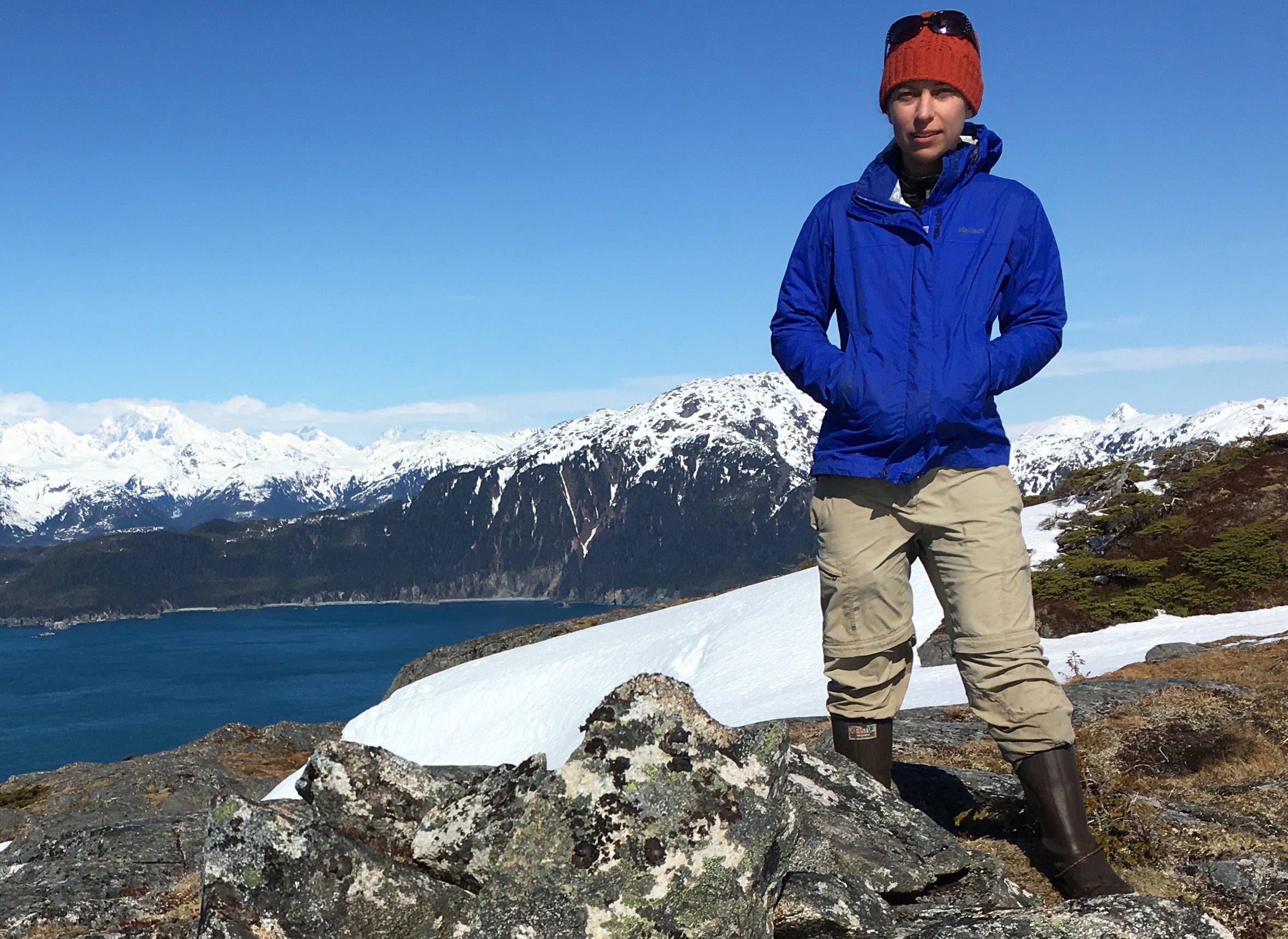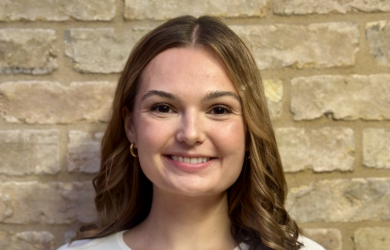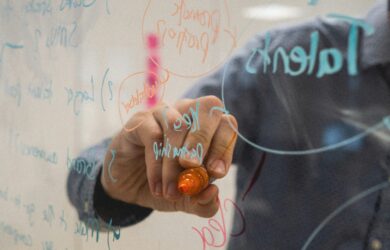
Laura Marcus speaks about how she founded and developed the Arete Project.
Very few of us get to create our own religious or political community, but we do get to educate our children in the way we want. Examining how schools represent our ideas about the world – and our hopes for it - has been my guiding intellectual fascination.
Laura Marcus
Laura Marcus has long been interested in how the education system can better prepare young people for democratic citizenship. At high school she was an activist, taking part in protests against the Iraq war. It was there that she discovered Deep Springs College which follows a two-year liberal arts curriculum in a remote part of California and where students lead class discussions, work 20 hours a week on the school’s ranch and farm and play a significant role in institutional decision-making. “It’s very participatory, very experiential,” says Laura.
The College, where she worked between graduating from Yale and starting at Cambridge, inspired her to set up her own alternative model of higher education and she is already getting wide recognition for her work. Her Arete Project was recently featured in The New Yorker magazine and Laura is planning to expand its campus to Alaska in the next few months. The Arete Project has been running for four years, including during Laura's time at the University of Cambridge.
Laura, who is finishing her PhD in history and education at Stanford, says what unites her MPhil and what she has been doing since is “how ideas get translated into reality” and how educational institutions embody particular ideals. She says: “Very few of us get to create our own religious or political community, but we do get to educate our children in the way we want. Examining how schools represent our ideas about the world – and our hopes for it – has been my guiding intellectual fascination.”
No Child Left Behind
For her MPhil at Cambridge she studied school accountability reforms in the late 20th and early 21st centuries, in particular the No Child Left Behind Act. “The Act was designed to enforce accountability in schooling and passed with sweeping bipartisan success. But very quickly it became a punching bag. I saw in that example how people – especially Americans – use schools as a way to confront massive social problems rather than other state apparatuses. That legislation also contained many assumptions about the relationship between schooling, citizenship and democracy. I wanted to explore how the reform came out of commitments to educational excellence and inclusion, as well as who should be held accountable for that,” she says.
Laura was also interested in how the reform worked in reality, for instance, what duties students, parents, teachers and others had compared to government. “My original idea shifted from how we get students to be part of a democratic education system to how governments design education policy in a way that reflects their ideas of how not only schools, but also society should work,” she says.
While she was doing her MPhil in Education, Laura, who was based at Clare Hall College, supported the Arete Project's move after its first summer from California to North Carolina. That meant developing relationships with people in North Carolina, hiring new faculty and recruiting students.
Education and citizenship
For her PhD Laura is studying the ways schools were deployed to address problems of citizenship in the US between 1880 and 1920 as the US state pushed across the continent in the wake of the Civil War. “A lot of the questions reformers were wrestling with are the same as we are wrestling with today. They have always been the challenge of the US project – how to honour the idea of e pluribus unum, how you bring all these different people together as one nation. In school policy you can see the tensions reformers faced in trying to assimilate groups who had different cultural and educational traditions. Enforced assimilation looked quite brutal during that era, but you can see intimations of these same issues today in debates about bilingualism or the charter school movement,” says Laura.
She is about to move to Alaska to be with her partner who is an oceanographer and will be working full time on the Arete Project from her new home. She hopes eventually to develop a campus there. “I have known for a long time that this is going to be my life’s work,” she says. Like Deep Springs College, the Arete Project involves a small cohort doing experiential, liberal arts and sciences education in a wild setting. Its three educational pillars are liberal arts, physical labour and student self-governance. Historically, Deep Springs College has only admitted men, so the Arete Project has only admitted women. With Deep Springs going co-ed next year, the Arete Project will begin running co-ed programmes (in addition to its all-women programme) in 2018 or 2019.
Arete Project students can sit on a range of committees covering everything from applications to outreach and hiring faculty and these responsibilities continue even after the programme ends. Alumnae have arranged their own convention and there is also an alumna on the board of directors. “I think the Arete Project offers something really valuable in our current social and political climate. It is a powerful re-imagining of higher education,” says Laura.
This year there were several international students on the programme. Laura [2014] is looking to diversify the applicant pool more, in recognition that many past students have been from elite colleges. The programme costs $500 for eight weeks over the summer and there are full scholarships available. Students grow their own food and construct some of their own shelter.
“That closeness to nature is important for teaching interdependence. The small, heterogenous groups mean there is space for people to have challenging conversations across boundaries of difference,” says Laura. “Given the fracturing of our social sphere, these are conversations we desperately need to be having. One of the most transformative parts of the programme is that people have to engage with very different attitudes than they are used to.”












